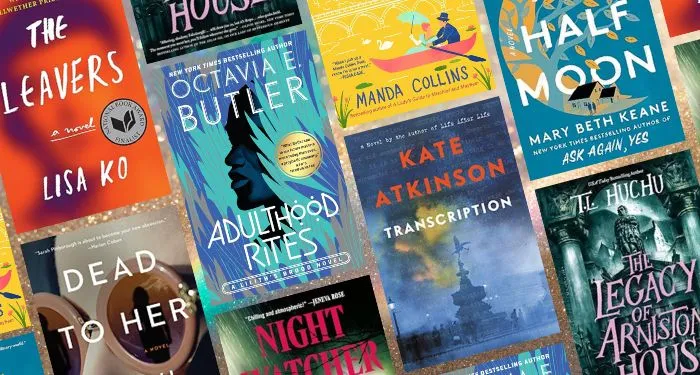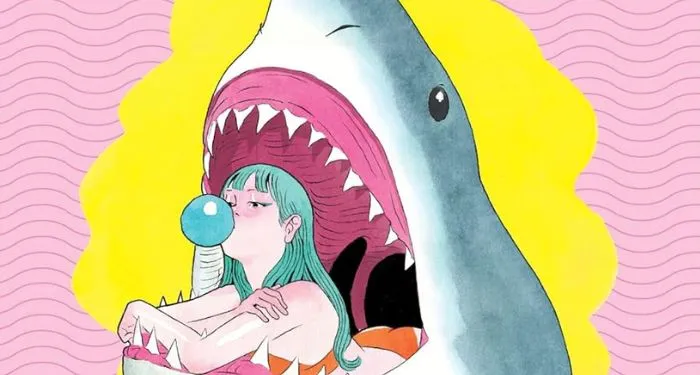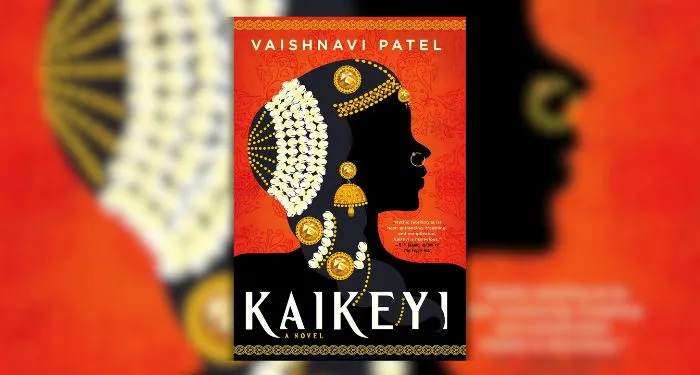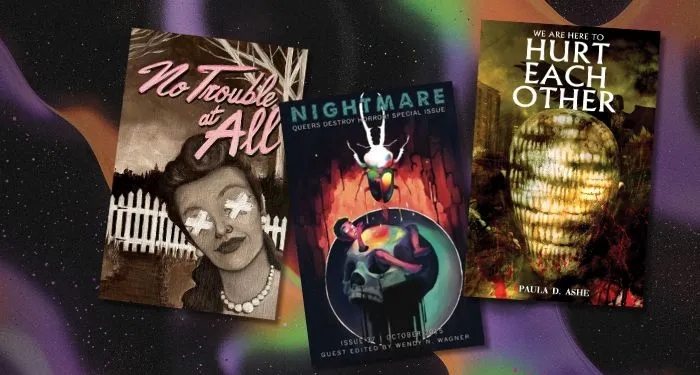Adam and Eve in Paradise, a buoyant novella by the nineteenth-century Portuguese writer José Maria de Eça de Queirós, begins by informing us that “Adam, the Father of Mankind, was created on the twenty-eighth day of October at two o’clock in the afternoon.” As we soon discover, Eça de Queirós is citing the “learned and most eminent” James Ussher, a seventeenth-century bishop whose Annals of the Old Testament, Deduced from the First Origins of the World concluded that the world had emerged from chaos and darkness six evenings earlier, on October 22, 4004 BC.
The Portuguese novelist and the Irish cleric share an equally unshakable conviction in their ability to fathom and explain the mechanics and details of Creation. While Ussher bases his conclusions on arcane calculations, the paradoxically knowing and bubbly narrative voice of Adam and Eve in Paradise derives its authority from its originality, its lyricism, its humor, its bold contradictions and sudden reversals. In Margaret Jull Costa’s sparkling, ingenious translation, Eça de Queirós’s novella offers an unscientific, illogical, and ultimately profound consideration of how humans evolved and forged our fragile peace with nature.
Only sixty pages long, Adam and Eve in Paradise bounces from landscapes that evoke the book of Genesis to events that seem like dramatized versions of Darwin’s On the Origin of Species; from moments that recall the novels of H.G. Wells to passages that predict the cinematic dinosaur-on-dinosaur death matches that weren’t filmed until long after Eça de Queirós’s death in 1900. Despite the book’s short length, there’s room for startling plot turns, inspired details, violent drama, and a thoughtful consideration of what it means to be human.
Daringly, Adam and Eve in Paradise suggests that despite the long and often bitter conflict between creationists and evolutionists, there’s no reason these apparently contradictory theories can’t be reconciled. How shortsighted we have been to think we had to choose. Poor John T. Scopes, tried and found guilty in Tennessee, in 1925, for agreeing to teach the science that Eça de Queirós assumes to be true—and plays with—even as he gives God enough credit and agency to mollify those who think that we owe our existence to intelligent design.
Leaving Ussher to his mathematics, Eça de Queirós takes us back to the time when the “gray, soupy, primordial Earth” is being fitted out and spruced up for the “Chosen One.” Throughout most of the book, our planet remains a “work in progress,” with all the discomfort and uncertainty that the phrase suggests. The first draft of Earth is pleasant enough, offering “all the accoutrements and ornaments enumerated in the Bible, the green leaves of ripening wheat, perfecto, the trees heavy with fruit and flowers.” It’s Edenic, but not the Garden of Eden, which Adam will enter later.
Both Genesis and Adam and Eve in Paradise introduce us to a bucolic countryside, but they take radically divergent paths as soon as Adam appears. Adam enters the Old Testament as a figure fashioned from earth, a dust-doll animated when God breathes life into its nostrils. For Eça de Queirós, the creation of man is less elevating and transformational. It’s—quite literally—a downward slide:
A certain Being slowly loosened its grip on the branch on which it had been perched during that centuries-long morning, slid down the ivy-clad trunk, placed its two feet firmly on the soft, mossy ground and stood erect.
Unlike Michelangelo’s hunky, depilated Adam or Lucas Cranach’s handsome young fellow, this First Man is “a truly alarming sight.” He’s covered with shaggy body hair. His cranium slopes, his jaw juts, his amber-yellow eyes track back and forth, watchful and afraid.
Newly self-aware but not yet confident in his bipedalism, Adam lumbers off toward Eden. When a breeze brings the scent of the female apes crouched in the trees above him, Adam utters a “sad, hoarse grunt.” It’s the first quickening of the nostalgia for his former life that will haunt our primeval ancestor and inspire the book’s meditations.
Eça de Queirós is hardly the first writer to ask whether we would be better off without the blessing and curse of our complex consciousness. In “Song of Myself,” Whitman famously longs to live with the animals, so placid and contained, so unlike dissatisfied, materialistic people lying awake and weeping over their sins or talking sickeningly about their duty to God. In On the Advantage and Disadvantage of History for Life, Nietzsche envies the grazing herd, authentic and content—not tormented, as we are, by longing for our vanished past and fears about the future. Eça de Queirós’s Adam undertakes the hard work required to become a man, but he cannot stop missing the blissful days of “leaping and shrieking through the high branches.”
Staggering into Eden, he’s alarmed and depressed by a sudden awareness of the physical and psychic distance separating him from his lost sanctuary, the trees:
Freed now from his Animal self and on his way to Becoming Human, he saw that the trees that had been his sweet and entirely natural refuge resembled a sad, degrading prison. And those twisted branches hindering his progress, were they not strong arms reaching out to clutch and pull and keep him in the leafy heights?
The newly hostile tree limbs keep tripping Adam, but after each stumble, he stands up again, “more human and more our Father.”
As Adam explores his garden home, its dark side rapidly reveals itself: palm trees bent by the weight of the boa constrictors encircling them, yawning crocodiles, “fat, glossy water snakes…fixing Adam with a furious stare, flicking their tongues in and out and hissing.” Gripped by “a human sadness,” Adam contemplates a lake from which “hideous snouts, dripping with green slime,” appear, bellow, then vanish under the mud.
At last he reaches the sea, which nearly overwhelms him with fright—and with good reason. A horned monster emerges from the water. “Its pale glassy eyes were like two enormous dead moons. Dragging through the sea far behind it came an immense toothed tail, its every slow swish provoking a storm,” Eça de Queirós writes.
You will already have recognized these rather unpleasant features as belonging to the Ichthyosaurus…the last of its kind to live on in the oceanic depths until that memorable twenty-eighth day of October—just so our Father could get a glimpse of the origins of life.
If we’ve failed to identify the monster by name, perhaps it’s because we’ve been distracted by our awareness that humans and giant prehistoric lizards didn’t inhabit the Earth at the same time. But by now we’re so caught up in the force of Eça de Queirós’s narrative that we may think, So what?
Before Adam can recover from his terror at seeing the dinosaur, a second one—a Plesiosaurus—arrives. “And to the astonishment of the First Man (and to the delight of paleontologists),” the narrative voice tells us, “the two beasts immediately engaged in the battle that would mark the end of Earth’s prehuman age.” After a gory struggle, the wounded Plesiosaurus limps off toward the swamp, its beak buried in its dead opponent’s belly. Standing over the vanquished reptile, Adam feels the sudden urge to supplement his diet of foraged berries with some raw dinosaur meat.
Sated by his flesh meal, exhausted by so much stumbling about and so many upsetting surprises, Adam falls asleep. One by one, the beasts gather around him, and it becomes clear that Paradise is not the place where, as the book of Isaiah promised, the lion (or, in some translations, the wolf) would dwell peacefully with the lamb. The animals are attacking one another and preparing to murder Adam, “hoping against hope to destroy and eliminate from the Earth the Intelligent Energy that was destined to subdue Brute Force.”
Fortunately, Adam is guarded and protected by the celestial angel with the flaming sword who, in Genesis, will show up only later to enforce his exile. He wakes to discover another Being beside him, “very similar to him, only more slender and covered with a more silken down—regarding him with wide, lustrous, liquid eyes…. It was Eve…. It was you, O Venerable Mother!” Unlike the biblical Adam, Eça de Queirós’s venerable Father greets his new partner with an intact set of ribs. Eve is simply there: “This silken, tender Being was offering itself up in astonished, lascivious submission.”
Adam soon finds that providing for his new family is harder than feeding himself, especially now that Paradise has begun to look like a preview of hell. In those early days, God is still perpetually rethinking, destroying, and renovating his handiwork. Disastrous droughts alternate with perilous floods. Overnight, forests become lagoons, and our first parents, relaxing among the rosemary and thyme on a fragrant hillside, are “sent tumbling down that gentle slope, amid the rumble and the flames and the smoke and the gray ash of the volcano that Jehovah had just that minute created.”
A Darwinian battlefield designed for gladiatorial combat, the land is thick with vultures and crows waiting to feast on carrion. Flocks of pterodactyls darken the sky. When the angels visit Paradise, they walk around with their wings folded lest the hyenas leap out of the trees and rip off their feathers. Adam and Eve eat the predators’ leftovers, even as the more powerful beasts salivate over these delicious bipeds. The couple is afraid of being crushed by the boa constrictors, who have trouble distinguishing people from the tasty monkeys that humans still somewhat resemble:
And danger did not come only from the starving hordes of carnivores, but from the slow, sated, idle herbivores, the aurochs, the wild oxen, the stags, who would happily gore or trample our Parents out of sheer stupidity, simply because they did not like the look or smell of them. To which were added those who killed in order not to be killed themselves, because life in Paradise was ruled by the laws of Fear, Hunger and Fury.
Eventually, Eça de Queirós’s constant emphasis on Adam’s dread of being devoured by his neighbors reveals a larger thematic purpose:
If the troglodyte Lion had never roared, Man would not now be working in cities, because Civilization was born out of his desperate attempts to defend himself against both the Unfeeling and the Unthinking. Society is really the work of the wild beasts.
Eça de Queirós again cites James Ussher—the “very precise Jacobus Usserius Armachanus”—to tell us that the next milestone takes place in the afternoon, when Adam encounters the threatening Father of All Bears. Desperate to protect Eve, he grabs a pointed stick, hurls it, and pierces the bear’s heart:
Ah, ever since that blessed afternoon, Man has truly existed on the Earth.
He became a Man, and a superior one, when he took one terrified step forward, extracted the stick from the dead monster’s breast and looked at the wound spouting blood, frowning in his efforts to understand. Then his eyes shone brightly at this astounding victory.
Readers may be reminded of the scene in Stanley Kubrick’s 2001: A Space Odyssey when the ape discovers the utility of a bone as a tool and a weapon and flings it up into the air, where it becomes a spaceship.
No longer merely progenitors, Adam and Eve become coworkers, scouring the garden for pointed sticks. Is Eça de Queirós saying that we became truly human only when we learned to make and use weaponry to kill our enemies and our prey? Again, it’s not strictly accurate: chimpanzees employ pointed spears to hunt and establish territorial boundaries. And again, it doesn’t much matter. Adam and Eve have taken a major step.
Soon Eve is helping out in all sorts of ways. She figures out how fire—which she and Adam discover by accident—can be tended and kept burning: “Adam knew then that it was her fire that drove away the wild beasts,” Eça de Queirós writes, “and that, finally, they had a safe place to hide, their safe place.” New to the concepts of possession and belonging, Adam imagines and fashions tools: “And Adam owed those creative moments to his strong wife!” Not only is Eve the fire tender, but she also discovers that meat tastes better cooked and that animal hides can be stitched together to make clothing.
Adam loves being home. The couple has a fern bed and a comfy bearskin blanket. They adopt a puppy and assume conventional domestic roles—Adam hunts, Eve plants a garden—but Eve is clearly the brains of the family. Abel is born. The volcanoes fizzle out. Even the weather brightens. Lamb is roasting on a spit. Eve has learned to spin wool, and Adam is making art, using a fragment of sharp stone to etch the image of a running deer into a piece of bone.
Readers of Genesis, Paradise Lost, and other versions of the story of Adam and Eve may have begun to wonder: Where is the Tree of Knowledge, the Serpent, the Forbidden Fruit, the Fall, the Expulsion from Eden? The book is almost over, and Adam and Eve are still in Paradise.
There’s been an earlier reference to a snake and the prohibited fruit during Eça de Queirós’s ruminations on fear as the driving force behind evolution:
The Mesopotamian poets of Genesis revealed their understanding of Man’s origins in those subtle verses in which the Serpent, that most dangerous of creatures, leads Adam, out of love for Eve, to eat the fruit of the Tree of Knowledge.
This time it’s Adam who agrees to sample the fruit, partly because of love and partly because the serpent is intimidating and scary.
But as the novella nears its conclusion, we learn that in fact Eve is the only one smart enough to listen to the serpent—and it’s fortunate for us all that she does:
And what a debt the whole of Humanity owes her! Let us remember, brothers and sisters, that our Mother, with the superior instinct that, later, made her Prophetess and Sibyl, did not hesitate when the Serpent, coiled among the Roses, said to her: “Eat of the fruit of the Tree of Knowledge and your eyes will be opened, and you will be like the Gods, knowing good and evil!” Adam would have preferred to eat that very juicy Serpent. He didn’t believe in fruit that could make you Godlike and Wise. After all, he had eaten plenty of fruit from the trees and had remained as ignorant and beast-like as the bear or the aurochs.
Eça de Queirós is assuring us that it’s good to enjoy the wisdom that the Tree of Knowledge provides. Consuming a fruit that makes you smarter is no reason to be evicted! Adam and Eve are not suddenly ashamed of their nakedness and desperate to cover themselves, because Eve has already clothed them in their animal-skin finery.
Like any marriage, theirs has issues—Adam is annoyed by certain aspects of Eve’s domesticity—but really, our first pair of soulmates could go on like this forever. Eça de Queirós prepares the reader to leave them with high hopes for their future. Eventually, he suggests, Eve will develop into Helen and Adam into the great Aristotle.
There’s only one little problem: the misery that Adam and Eve will feel if they compare their lives with those of their relatives who had the intelligence and foresight to turn down God’s offer to help them walk on two legs. We don’t need to witness the Fall from innocence and grace, so important to Genesis and to Paradise Lost, because for Eça de Queirós, the Fall already happened when Adam slid down from the trees and landed on his feet. Evolution had to occur, but we don’t blame Adam for feeling regretful. We know that it’s hard, being human.
Near the end of the novella, there’s a passage in which Eça de Queirós imagines an orangutan’s daily routine:
Every morning, the Orangutan wakes in his bed of leaves, on a soft mattress of moss carefully arranged by him on a couch of perfumed branches. Languidly, with not a care in the world, he lingers idly on the soft moss, listening to the limpid songs of the birds…. Then, having breathed in the aroma-laden breezes, he leaps nimbly through the ever-open, ever-full larders of the forest, breakfasting on bananas, mangos, and guavas, the fine fruits that render him as healthy and immune to disease as the trees he picked them from.
After an afternoon of chatting and playing games with his friends, flirting with orangutan ladies, and hearing an old chimpanzee tell stories about the tricks he played on humans, he
abandons himself to the delights of dreaming…and falls asleep in God’s vast peace, a God he has never bothered to name, still less deny, and yet who still rains down on him, with impartial fondness, the wonders of his Mercy.
The joke is that the orangutan’s life sounds like paradise.
By now we’ve come full circle, from God creating the world on October 22 to a farcical, slyly cartoonish take on Darwinian evolution—and back again to God. Meanwhile the novelist insists that we compare the burdens of modern life with the imagined happiness of the less fully evolved primates.
Obviously it’s ironic. Eça de Queirós isn’t asking to be relieved of his burdensome human soul and reborn as an orangutan. And arguing for the superiority of the happy ape does seem a little unfair. Homo sapiens have accomplished a lot and made some beautiful things! Besides, we know that chimpanzees, with whom we share a common ancestor, have a mean streak like our own. They’re aggressive and fight ferocious territorial wars over a favorite fruit.
But we understand what Eça de Queirós means. What pet owner, tormented by large and small anxieties, remorse, and the pained awareness of mortality doesn’t at some point envy the family dog, contentedly wagging its tail?
The novella’s ending comes as something of a shock because, after the grisly horrors of Eden and the offhand remarks about the stupidity of Man, the poetry and mystery of the final sentences deliver us squarely back into the hands of God. These last words read like a confession and a prayer, and they made me think of what Simone Weil might have written had she been a novelist riffing on the story of Adam and Eve:
We continue to reign over Creation as sublime beings…Above all, we continue to make insatiable use of the best of the many gifts that God gave us…the gift of loving Him, even if He didn’t also grant us the gift of understanding Him. And let us not forget that He taught us,…that the best way of loving Him is to love each other, and to love His work,…even those vast beings that do not seem to need our love, those Suns, those Worlds, those scattered Nebulae, which, like us, were once held in God’s hand and formed out of the same substance as us, and which certainly do not love us—indeed, they may not even know that we exist.
I read the novella in one long afternoon and read it again the next day. Both times I cried at the ending. I’ve noticed that this brutal moment in our country’s history has given me easier access to what I once heard described as the televangelist Tammy Faye Bakker’s “gift of tears.” I suppose mine were tears of gratitude to Eça de Queirós, a novelist compared in his time to Balzac and Flaubert, dead now for a century and a quarter; tears of thanks for his having written something so philosophical, so spiritual, and so funny without ever preaching or going for the easy laugh.
What pure pleasure it is, in these dark times, to read a bright fantasy about Adam and Eve and evolution, about the necessity of loving the poisonous roots, the scattered nebulae, and even one another without any expectation of being loved in return. What a relief to be swept up, however briefly, in a novella that at least considers the possibility that we were all created from the same substance in October 4004 BC.



















 English (US) ·
English (US) ·